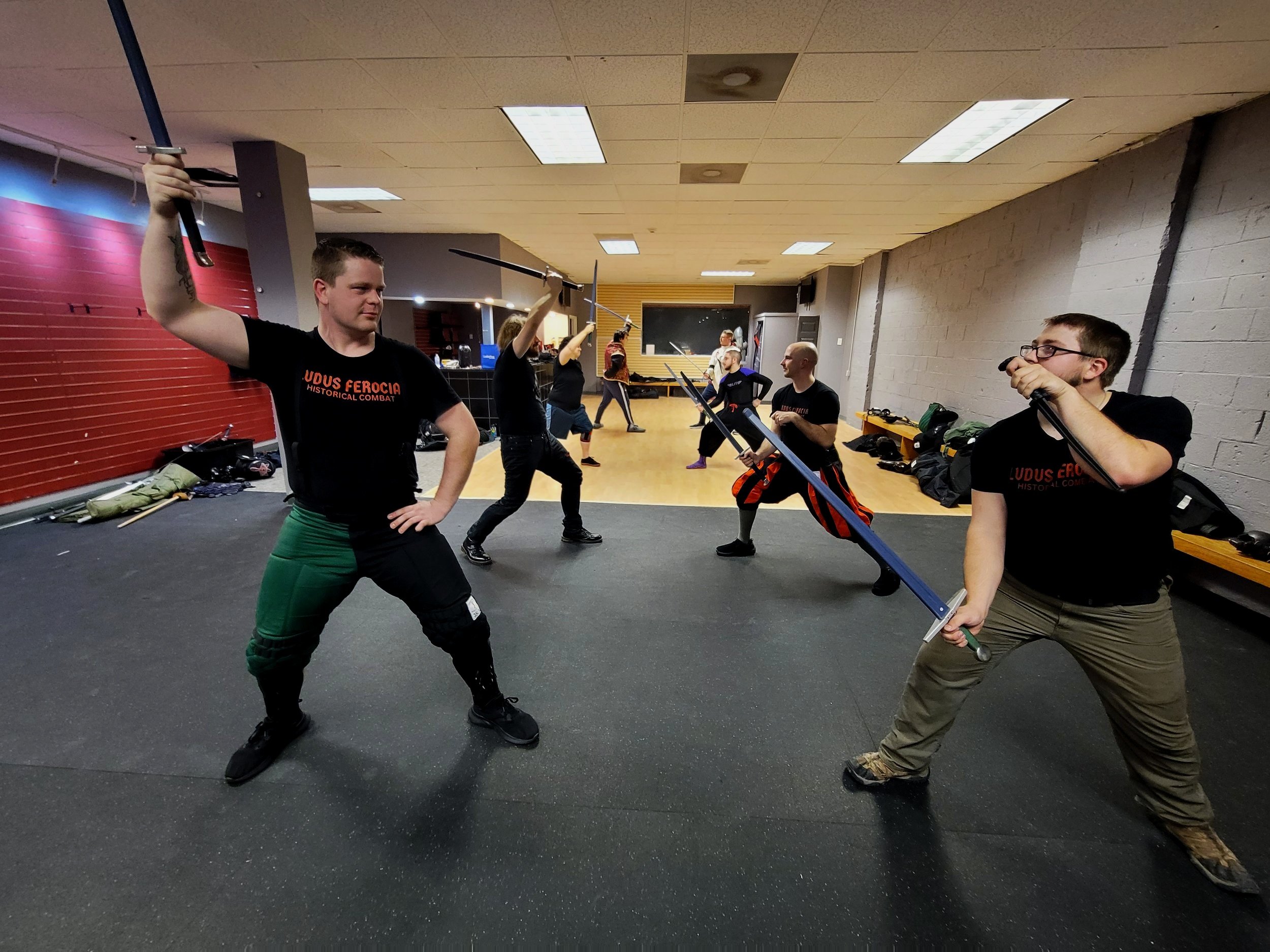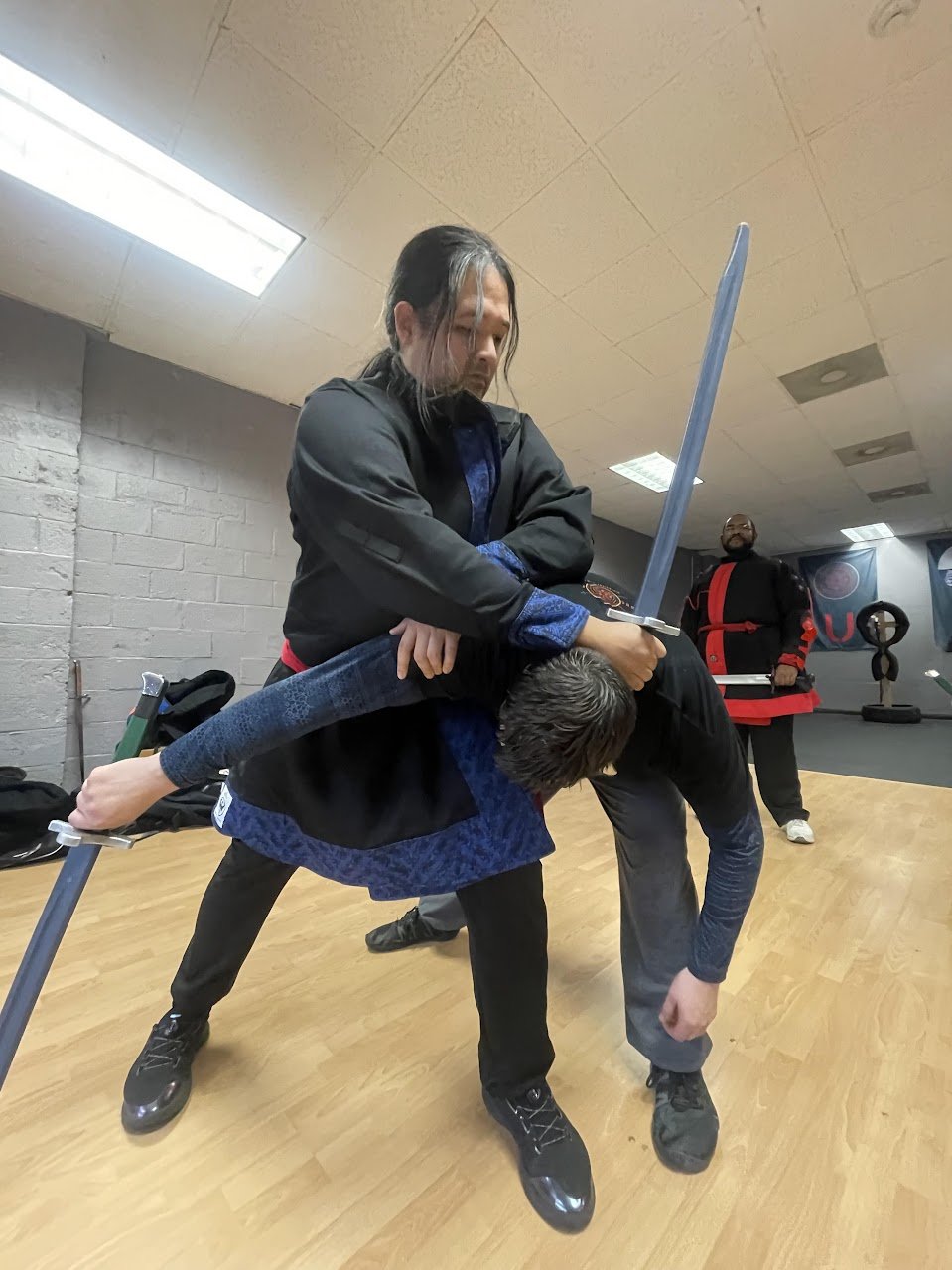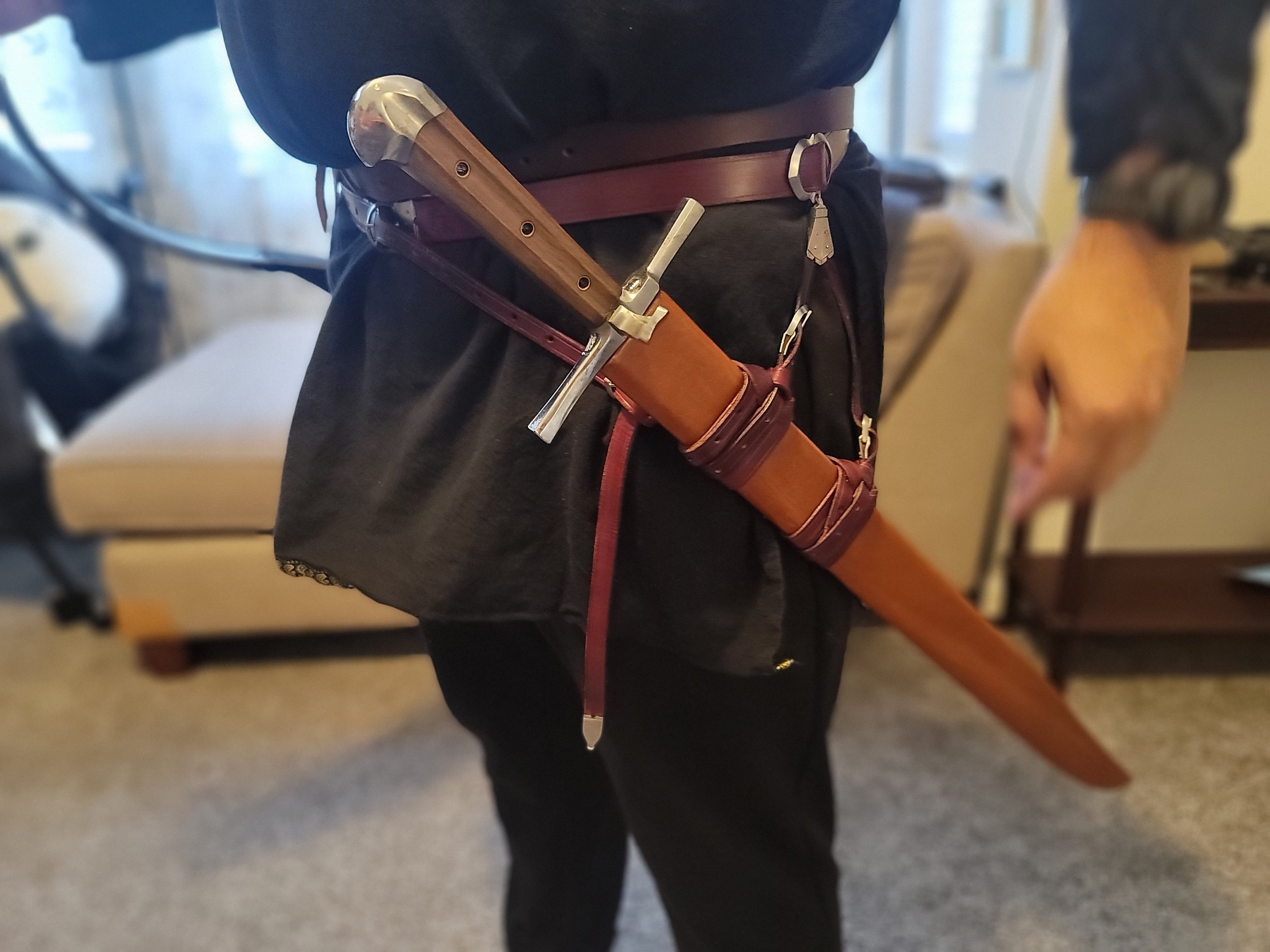
OUR MESSER CLASSES
Wednesdays at 6:30PM-7:30PM
We teach the Langes Messer using both traditional manuscripts and a practical approach through sparring. Being a self-defense sword, the langes messer is taught as a standalone weapon, with a buckler, and with a dagger at different times through a student’s progression! The langes messer is a very dynamic and fun weapon to learn as not only will you be focusing on the fencing aspect of its use, but grappling and binding as well.
Like all of our classes, we pride our club on being welcoming to those of all experience levels. You can be a skilled fencer or a beginner and still get a lot of out the classes! Please feel free to check out our GEAR GUIDE page to see our equipment recommendations to start your langes messer training.
Feel free to reach out about our classes at any time if you have questions! Visit our GEAR GUIDE page to see what equipment you need to get started!
GALLERY













LANGES MESSERS - THE LONG KNIFE
Langes Messer (long knife) were small, single-handed swords originating from Germany but used throughout Europe, from 1300-1500. They were typically carried by commoners for self-defense and possibly agricultural work. They weighed in at around 1-2.5 lbs and could be up to 33 inches in blade length but averaged out at around 24 inches. While mostly a single-edged weapon, many had portions of their back edge sharpened as well. The size of these swords made them perfect for convenient every-day wear and most were cheaper to make than traditional swords. What set them apart from other knightly swords of their time is their hilt construction. As their name implies, the messer’s hilt was constructed slab-sided, similar to a knife.
NOT JUST USED BY PEASANTS
While messers found themselves strapped on the belts of many peasants, they were not reserved only for the lower class. Many masterfully-crafted messers were built for nobility and carried proudly. The sword on the right was crafted for Archduke Maximilian I and is lavishly ornate. While most messers were plainly decorated, there were some that were elaborate in their construction. Messers were also used in combat by men-at-arms and those of the knightly classes.
DESIGNED FOR SELF-DEFENSE
Unlike larger two-handed swords, the langes messer was designed as a self-defense weapon. Its smaller size and ease of construction made it a prime choice to make accessible to peasants, mercenaries, and travelers. Due to its popularity of ownership, detailed training manuals by fencing masters such as Johannes Lecküchner, Hans Talhoffer, and Albrecht Dürer.
Complex movements, grappling, binding, and the infliction of grievous wounds were all a part of learning how to fight with the long knife. With such manuals, it became one of the most common fighting implements on the streets, second only to hand knives.



